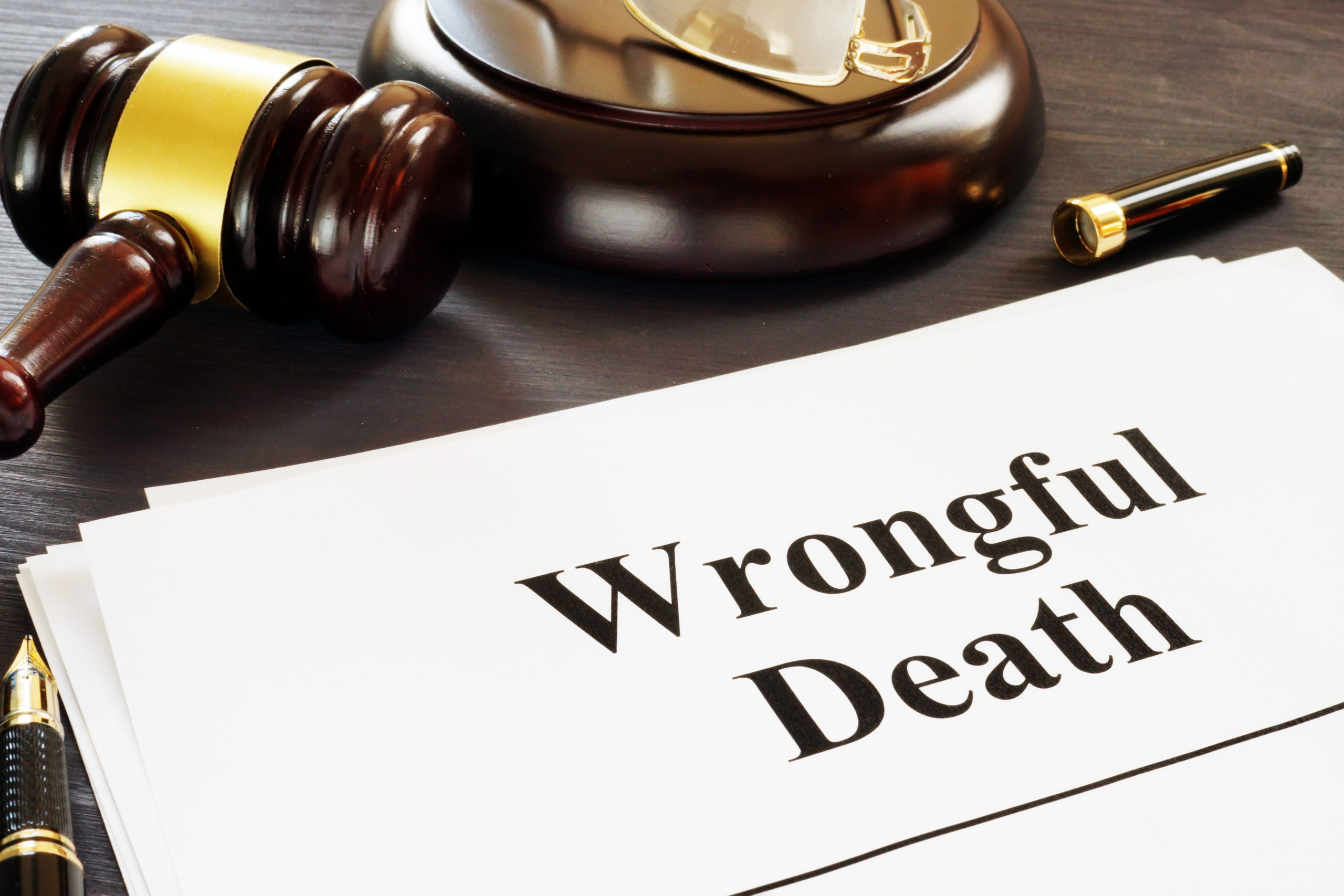The demise of a relative or a loved one can be a depressing event, mainly if the person you loved lost his life too early as a result of intentional, reckless, and negligent actions of another.
You are possibly enduring a condition that you or your family member does not deserve. If you or your loved one is seeking compensation due to the personal injury of a relative, you can rely on Injured CT to aggressively protect your interests and legal rights.
At Injured CT, we believe that whenever somebody- recklessly or intentionally- leads to the death of a person, they ought to be held responsible for their acts. Our Bridgeport personal injury lawyers are dedicated and experienced in offering a compassionate lawful presentation for those facing the wrongful death of their partners.
If you believe that your relative passed away due to avoidable causes, call our Bridgeport wrongful death lawyer for aggressive, experienced, and qualified representation of your case.
How Is Wrongful Death Defined in the State of Connecticut?
Although there are various kinds of personal injury cases, these lawsuits are all recovery claims that are brought by state courts. A wrongful death lawsuit in Connecticut is defined as a person’s intentional or negligent action that leads to the demise of another person.
Each state has its own methods when it comes to the procedure in which the affected party should file a claim, and there are also rules in identifying the people who should file the personal injury recovery.
All Wrongful death claims in Connecticut are presented in the nation’s lawful statutes, which states that if the injury is due to the following reasons, Connecticut’s law grants the surviving family members the right to file a claim:
- Negligence
- Default or breach of contract
- Wrongful act
There is also an order of limitations that are concerned with personal injury lawsuits. The timeline set for Connecticut a residents to file a personal injury claim is limited to exactly two years from the time of the decedent’s demise.
In some certain instances, the representative or lawyer of the family might be granted an extension for the lawsuit. Nevertheless, most wrongful death claims are only allowed within a period of two years.
Who Is Qualified to File a Bridgeport Wrongful Death Claim In Connecticut?
When an individual dies in Connecticut, they leave behind all properties they own, often known as the “estate” at the period of their demise. The estate is left to the surviving members of the family through a will or identified by the laws of this state.
The first priority of plaintiffs who can file a lawsuit under the personal injury case in the state of Connecticut is the family’s personal representative.
The personal representative of the estate is the individual who can file a personal injury lawsuit on behalf of the surviving family members of the decedent. Although the surviving family members would be the beneficiaries of the estates, they are just entitled to diverse kinds of damages- greater settlements.
According to the Connecticut personal injury law, the individuals listed below qualify to file a wrongful death claim:
- Parents of the deceased person
- Spouse of the deceased person
- Adoptive brothers and sisters
- Blood relatives who were partly dependent on the deceased person
- Kids of the deceased person (kids under the age of twenty-five years, are entitled to bigger injuries)
According to Connecticut’s statute of personal injury claims, children of all ages are allowed to compensate for lost services and support from the period of death of the deceased person and the future loss of monetary support.
In the case where the deceased person did not leave a surviving spouse, kids of all ages might be able to recover damages due to the loss of companionship and parental guidance, as well as for suffering and emotional pain- unless the death was caused by medical recklessness.
Parents are denied the right to recover damages for suffering and pain if their dead child was over the age of twenty-five years at the time of their demise unless there are no other surviving people, and if the death was due to medical negligence, then no suffering and pain damages will be put into consideration.
Funeral and medical expenses leading to the demise of the decedent can be claimed by the surviving person who paid those costs.
What Types of Damages Are Recoverable?
The Wrongful death statute of Connecticut sets forth certain types of losses that can be compensated. According to the law, both the estate and the survivors can recover the losses.
The survivors can receive recoveries for the value of services and support that the decedent had offered to the surviving family members, loss of guidance and companionship offered to the survivor, emotional and mental suffering and pain in instances where a kid us lost, and recovery for any funeral and medical expenses any survivor has catered for the decedent.
On the other hand, the spouse of the decedent can technically claim for the lost companionship and the emotional trauma that resulted due to their spouse’s demise.
The deceased person’s minor kids can also get compensation for the losses for the lost welfares of their relationship with the late parent, such as support and comfort.
The only situations in which the parents of the deceased can get compensation are when their kid was still an infant and mainly for their mental trauma and their lost relationship with the kid. Additionally, parents of children over the age of twenty-five years cannot technically recover in most instances.
In some cases where there is malicious, reckless, and intentional conduct, punitive injuries might also be recovered by the survivors. The punitive injuries exist to punish such negligent acts though there is a limitation to the number of punitive damages that could be compensated.
Can a Surviving Family File for Punitive Damages?
Technically yes. Surviving family is also entitled to suffering and pain for the level of emotional torture faced from the demise of the decedent, as well as the loss of bond.
The court of Connecticut State might also decide to cover punitive losses to the surviving families if it is proved that the malicious party’s actions reckless, negligent, or intentional. The punitive damages are specifically intended to punish the defendant’s party and to discourage other malicious people from doing similar actions in the future.
If the beneficiaries are entitled to punitive damages, they receive them in addition to normal recovery damages.
How Is Negligence Proved in a Wrongful Death Case?
The negligence in a personal injury claim generally needs to be proved by the following three major elements:
- Breach of the duty of care: the plaintiff must show that the duty of care is available. Consequently, the plaintiff must prove that the perpetrator broke the duty of care. For example, in a vehicle accident, if the other person was overspeeding, drove while texting, or drunk, then they broke that duty of care.
- Duty of care: the complainant has to show that the perpetrator had a duty of care towards the decedent. Following the vehicle accident at the scene, the driver is obligated to follow the traffic rules and regulations and drive carefully while behind the wheel.
- Causation: ultimately, the plaintiff needs to show that the breach of duty of care led to the death of the decedent directly. Although the perpetrator was overspeeding, they are not accountable for the personal injury if something else, like a mechanical failure of the decedent’s vehicle- finally led to the demise. Nevertheless, if the death was due to a defective part of the deceased person’s car, then the producer of that car may be held responsible.
How do You Start a Bridgeport Wrongful Death Claim in Connecticut?
In order to file a claim in Connecticut, you need to start by submitting the lawsuit within the limitation’s statute. In the state of Connecticut, the limitation’ statute for a personal injury claim is within two years from the time of death or injury of the decedent. Failure to file the case within this time limit, you be illegible for recovery.
Additionally, another factor that must be considered is negligence. In order to file a personal injury case, you need to show that your loved one’s demise was due to negligent acts.
Certain instances include a motor accident, medical malpractices, and home neglect that led to the demise of the deceased person. Next, you need to discuss your claim with a lawyer from our firm.
By consulting any of our lawyers, you will be capable of figuring out whether you are eligible for the compensation and starting to initiate the procedure of evidence collection.
What Is the Difference Between a Wrongful Death Claim and an Estate Claim?
The wrongful death and estate claims are both governed by law. A wrongful death lawsuit is a tort lawsuit where the survivors are able to claim against the defendant responsible for damages that lead to the demise of their loved one.
Essentially, the survivors step into the responsibility of the deceased person and seek compensation for the value of life that was lost by the recklessness of the party accountable for the death of the deceased.
On the other hand, when an individual dies, they normally leave behind an estate that has some authority to follow lawful entitlements on behalf of the deceased person. Following the death of the deceased person, the state might accrue some costs, including burial and funeral expenses, which the estate can ask for compensation via an estate claim against a party accountable for the demise of the deceased person.
Call a Bridgeport Wrongful Death Lawyer Today!
If you believe that your relative passed away to intentional actions, call us today for experienced and professional representation of your personal injury claim.
It is very crucial that you consult an expert wrongful death attorney in order to comprehend your choices and have all your concerns answered. We can help you evaluate your claim and identify your legal rights, and whether or not you have a lawsuit under the state’s Wrongful death statute.

